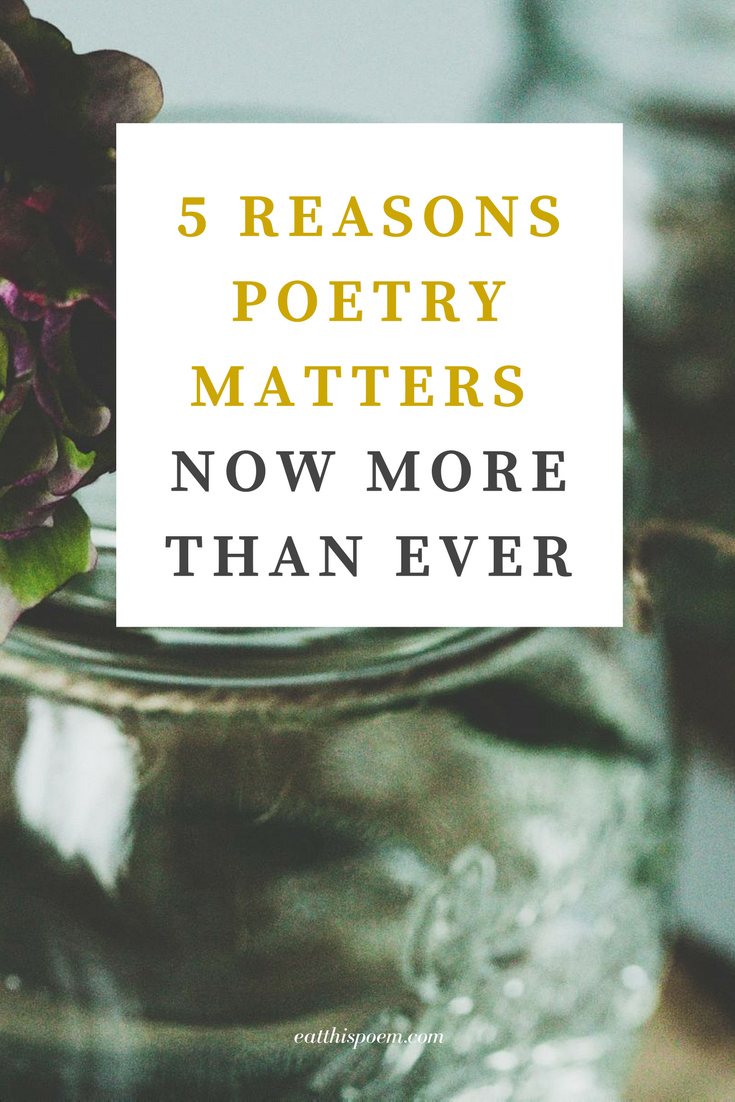“Poetry arrived
in search of me.”
This is how Pablo Neruda describes his intimate and mysterious relationship to the craft. His experience echoes many others—poets and writers who have difficulty explaining why exactly they write, only that they cannot not write. One day they went about their lives, when suddenly they were struck, compelled, or inspired to put pen to paper.
My experience was similar. As an assignment for my sophomore year, second period English class, we were asked to flip through the pages of a dusty copy of the Norton Anthology of Poetry and read the first poem our eyes landed on. That night, I went home and scrawled a poem into one of my notebooks. I didn’t know what it meant (and hardly had an inkling it would lead to a literary cookbook), and often wondered why writing, in particular, was the thing I had to do.
Poets are not strangers to doubt, fear, and the types of questions that link themselves and their work to a greater purpose. We struggle to find our place, see our inherent value, and embrace our unique set of experiences and stories that need to find a home on the page.
To this end, here are a few reminders of why poetry is useful, meaningful, and necessary to the world, now more than ever.
1. Poetry sparks meaningful conversations
When given a national platform—like the occasions when Robert Frost, Maya Angelou, and Elizabeth Alexander read poems at presidential inaugurations—poetry becomes an accessible medium conveying universal ideas and sentiments. It gives us something to talk about and a path to guide our conversations, particularly during a historic transition of power. But poetry doesn’t just make a statement in politics. You can find verse lining buses in Seattle, in Michigan’s national parks, and it’s even been used as a tool to help empower prison inmates.
2. Poetry makes us feel something
When I set out to choose poems to include in the Eat This Poem cookbook, I was looking for one thing: an emotional current. I wanted to feel something when I read the poem. I wanted to be moved, inspired, and connect to the story on the page. Like all art, poetry is subjective, and what might resonate emotionally with me may not resonate emotionally with you. But the point is, the best poems make our hearts beat a bit faster, or make our hearts swell just a bit when we arrive at the last line. Poetry has the power to do that—ignite our emotional lives and stir our souls, even if just for a moment.
3. Poetry gives us words when there are no words
Wherever there is chaos—internal chaos in our minds our bodies, or an occasion bigger than any one person can bear—poets become translators of emotion. The aftermath of 9/11 produced poetic responses now collected in anthologies. Poems also circulated during the 2016 presidential election, like “18 Compassionate Poems to Help You Weather Uncertain Times” from Huffington Post or Vox’s “Feeling terrible right now? Maybe some poetry will help.”
Poems tend to surface during life’s most important milestones and transitions, too, like weddings, births, and funerals. When we’re overcome with emotion, poems provide a sturdy foundation from which to express what’s swirling in our heart.
Don Share explains is beautifully: “You get this feeling that people can call on the poets when they need to, and that’s a great moment for poets—when they have an audience because we need to know how to go about reaching the next day of our lives.”
4. Poetry makes the mundane meaningful
“Someone who pays attention to the world” is how Susan Sontag once described writers, and it’s truly one of the most important aspects of the craft. Poets, in particular, tend to have a knack for this, identifying the fleeting flickers of our inner life we often brush past or ignore, delicately rendering the natural world, and putting words to emotions we have difficulty expressing.
"A lot of people might think that poetry is very abstract, or that it has to do with having your head in the clouds, but poets, actually, walk on the earth. They’re grounded, feet-first, pointing forward. They’re moving around and paying attention at every moment." This is Don Share again, explaining a common misunderstanding that poets might not be relatable, or that their minds flutter off to other, interior worlds. But poets and writers are here, today, experiencing life in all its richness and heartbreak. Then they tell about it.
5. Poetry satisfies our hungers
There’s a poem by Kathleen Lynch called “Appetite,” where she explains how we come into the world “hungry for milk and flesh,” how we are always looking for satisfaction, even when we are full. It’s a poem I eagerly included in the Eat This Poem cookbook because it speaks to a universal, somewhat mysterious and illusive need inside each of us—that is, having our hungers satisfied, both physically and emotionally.
Do we ask for the food lineage we inherit? No, I don’t believe we do. We are born into families who teach us to love the food in our blood from past generations. And yet, when we grow up and leave home, those cravings remain.
While we wait for meals to cook, poetry can help fill the gap with nourishing words, coating our hearts like soup on a spoon, or our grandmother’s tomato sauce. Whatever it is you need, there is always a poem to carry you.
What are some of reasons you love poetry? Let me know in the comments!
*Some of these links are affiliate links, which means I receive a very small payment at no extra cost to you.



